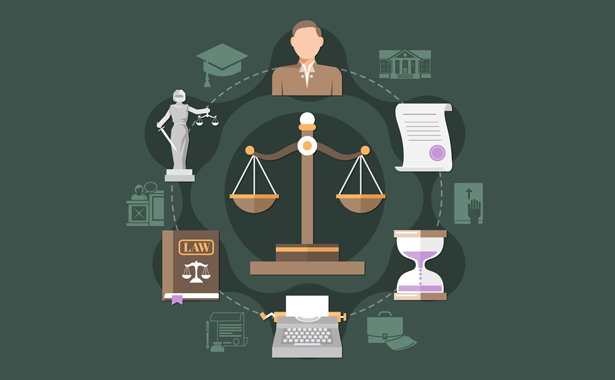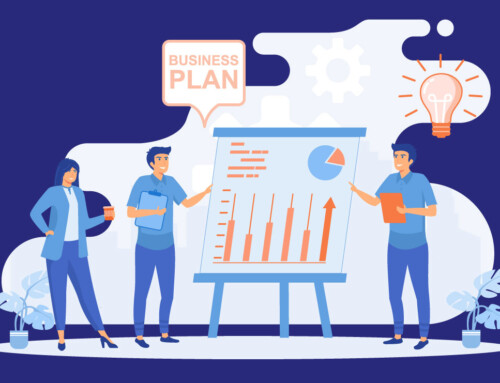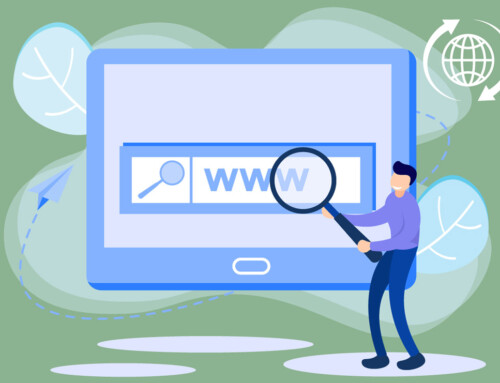Contents
2024 was a rollercoaster ride in all fields of tech; using tech has become unavoidable. There are so many tools on offer, but it’s hard to know which ones will actually help your practice. Clients expect quicker responses, more transparency, and cost-effective services—all while competition intensifies.
But with these challenges come opportunities. The right tools can streamline your operations, strengthen client relationships, and give you a real competitive edge. This guide highlights the nine essential tools for lawyers and legal practitioners regardless of the size or field of their practice. These tools will help you navigate the modern legal landscape, allowing you to work smarter instead of harder.
Comprehensive Practice Management Software
Why It’s Essential
Running a law firm involves countless tasks: tracking case deadlines, organizing client information, handling billing, coordinating schedules—the list never ends. Managing all these responsibilities manually or with disconnected systems can lead to inefficiencies, missed opportunities, and costly mistakes.
Practice management software brings all these functions together in one place. It cuts down on administrative work, reduces the risk of things slipping through the cracks, and frees up valuable time you can devote to your clients and cases.
Key Features to Look For
When choosing practice management software, consider these important features to ensure it fits your firm’s needs:
- User-Friendly Interface: The software should be easy to use. An intuitive design means you and your team can get up to speed quickly without needing lots of training.
- Integration Capabilities: To keep your workflow smooth, it’s crucial that the software works well with other tools you use, such as email, document management systems, and accounting software.
- Customizable Workflows: Every law firm operates differently. Software that lets you adjust workflows to match your specific processes will enhance efficiency and reduce friction.
Top Tool: RunSensible
Overview
RunSensible is an all-in-one practice management solution designed specifically for solo practitioners and small to medium-sized law firms. It combines powerful features with an easy-to-use interface, making it a strong tool without the steep learning curve often associated with complex software.
Key Benefits
-
- Seamless Case Management: Keep all your case-related information—documents, emails, notes, and deadlines—in one centralized location. This organization ensures you have quick access to what you need when you need it.
- Integrated CRM for Client Relationships: RunSensible includes a built-in Customer Relationship Management (CRM) system. Manage contacts, track interactions, and automate follow-ups to strengthen client relationships and improve retention rates.
- Automated Billing and Invoicing: Simplify your billing processes with features like time tracking, expense recording, and automated invoicing. These tools help you reduce errors and get paid faster.
Alternative Options
While RunSensible offers a complete set of features tailored for smaller firms, it’s wise to consider other options to find the best fit for your practice:
-
-
- Clio Manage: Known for its robust features and flexibility, Clio Manage offers case management, billing, and document management solutions suitable for firms of all sizes.
- PracticePanther: This platform emphasizes ease of use and offers features like task management, calendaring, and secure client communication portals.
-
Each of these alternatives has unique strengths, so think about your firm’s specific needs, budget, and workflow when making a decision. Many software providers offer free trials or demos, allowing you to test the features before committing fully.
Project Management Software
Project management in the legal sector involves a complex interplay of tasks, deadlines, and collaboration among team members. The right project management software can significantly enhance a law firm’s ability to manage its legal projects efficiently, ensuring timely delivery and high-quality service to clients. Among the myriad of tools available, a few stand out for their utility in the legal context:
- Trello
Known for its simplicity and visual approach to task management, Trello allows legal teams to organize their projects into boards, lists, and cards. This flexibility makes it easy to visualize workflows, track progress, and manage tasks related to different cases or projects.
- Visual Task Management: Create a visual overview of your project’s tasks and stages.
- Collaboration Features: Invite team members to boards, assign tasks, and track progress together.
- Customizable Workflows: Tailor your boards to match your law firm’s specific project management needs.
- Nifty
This project management tool is designed to streamline project workflows and enhance team productivity. Nifty offers milestone tracking, task assignment, and progress reporting, making it ideal for managing complex legal projects.
- Milestone Tracking: Set and monitor key milestones within your projects.
- Integrated Task Lists: Organize tasks efficiently with detailed lists and subtasks.
- Time Tracking and Reporting: Keep track of billable hours and project progress with integrated time tracking.
- RunSensible
While primarily known for its practice management features, RunSensible also offers project management capabilities tailored for legal professionals. Its features include task management, document storage, and time tracking, all within a platform designed specifically for law firms.
- Legal-Specific Project Management: Manage legal cases as projects with tasks and deadlines.
- Integrated Billing: Track time spent on tasks and easily bill clients.
- Centralized Document Management: Store and organize case-related documents within projects.
RunSensible not only incorporates the essential elements of project management but also offers unique functionalities tailored to meet the specific needs of legal professionals.
- RunSensible’s Comprehensive Features:
- All-in-One Platform: Combines project management with CRM, document management, and more.
- Legal-Specific Customization: Offers features and workflows designed to align with legal processes.
- Enhanced Team Collaboration: Facilitates seamless collaboration among team members, streamlining communication and task coordination.
- Client Portals: Provides clients with access to their case information, fostering transparency and trust.
Integrating project management software into a law firm’s operations can significantly improve efficiency, accountability, and overall project success. By choosing a tool that aligns with the specific needs and workflows of a legal practice, law firms can better manage their caseloads, meet deadlines, and deliver superior service to their clients.
Client Intake and Relationship Management
In the competitive landscape of legal services, the initial Client Intake process and ongoing relationship management are pivotal to a law firm’s success. Effective client intake ensures that law firms can gather necessary information efficiently, assess case viability quickly, and begin legal proceedings without delay. Equally important is the management of these relationships over time, which can significantly impact client retention and referrals. Let’s delve into how software solutions can transform these crucial aspects of legal practice:
- CloudLex
Specializing in personal injury law firms, CloudLex offers a dedicated client intake and management module that streamlines the onboarding process and facilitates effective communication between attorneys and clients.
- Intuitive Client Intake: Simplify the collection of client information through customizable intake forms.
- Client Communication Portal: Enhance client engagement with a secure portal for updates and document sharing.
- Matter Management Integration: Seamlessly transition from intake to active case management within the same platform.
- Lawmatics
As a CRM and marketing automation platform designed for law firms, Lawmatics excels in managing the client lifecycle from initial intake through to case completion and beyond.
- Automated Intake Processes: Automate workflows to ensure a smooth intake process, from scheduling consultations to follow-ups.
- Customized Client Journeys: Tailor communication strategies to each client, enhancing the personal touch and improving satisfaction.
- Data-Driven Insights: Utilize client data to refine marketing strategies and improve service offerings.
Incorporating CRM features, these platforms not only support the intake process but also enable law firms to maintain and nurture client relationships, ensuring ongoing engagement and satisfaction.
- RunSensible’s Advanced Features
RunSensible offers superior client intake and CRM capabilities specifically designed for law firms. It provides a comprehensive solution that not only streamlines the intake process but also fosters strong, lasting client relationships through its advanced features:
- Streamlined Client Intake: Automate and customize your intake process to reduce manual work and improve accuracy.
- Robust CRM Functionality: Manage all client information and communication in one place, ensuring no detail is overlooked.
- Engagement Tools: Keep clients informed and engaged with automated updates and reminders, enhancing the client experience.
- Feedback and Analytics: Gather client feedback to continuously improve your services and track your performance through detailed analytics.
Effective client intake and relationship management are more than just administrative tasks; they are integral to building trust and loyalty with clients. By leveraging the right software solutions, law firms can ensure a positive client experience from the first interaction, laying the foundation for a successful and enduring relationship.
RunSensible provides an all-encompassing solution that addresses the complexities of client intake and relationship management in the legal field. Its tailored features and user-friendly interface make it an invaluable tool for law firms looking to enhance their client intake processes and cultivate stronger relationships with their clients.
Case Management Software
Efficient case management is the cornerstone of a successful legal practice. It involves organizing, managing, and tracking all aspects of a legal case, from initial intake through resolution. The right case management software can make a significant difference in a law firm’s productivity, ensuring that attorneys have the necessary tools to manage their caseloads effectively, stay on top of deadlines, and communicate efficiently with clients and team members. Here’s a look at some key players in this space and how they contribute to streamlining case management processes:
- PracticePanther
A user-friendly legal software that offers a comprehensive suite of case management features, including document management, time tracking, and billing. PracticePanther helps law firms manage their cases more efficiently, ensuring that nothing falls through the cracks.
- Intuitive Interface: Easy to navigate, saving time and reducing the learning curve for new users.
- Workflow Automation: Customize tasks and workflows to automate repetitive aspects of case management.
- Client Portal: Provide clients with access to their case information, improving transparency and communication.
- Clio
Recognized for its robust capabilities, Clio offers an all-in-one legal practice management solution. Its case management features are designed to streamline operations, from scheduling and time tracking to document storage and client communications.
- Comprehensive Case Management: Keep all case-related information in one place for easy access.
- Mobile Access: Manage your cases on the go with Clio’s mobile app, ensuring you’re always connected.
- Integration Ecosystem: Seamlessly integrate with over 200 productivity tools for lawyers to enhance your practice’s efficiency.
- MyCase
This software provides law firms with the tools they need to manage their cases effectively, including calendaring, document management, and client communication, all within a secure, cloud-based environment.
- Centralized Case Information: Store and access all case details from a single platform.
- Client Communication Tools: Facilitate better client relationships with built-in messaging and collaboration features.
- Online Payment Processing: Simplify billing and collections with integrated payment solutions.
RunSensible elevates case management for law firms by offering a tailored solution that addresses the unique needs of legal professionals. Its case management software is designed to provide efficiency, security, and ease of use, making it an indispensable tool for law firms aiming to optimize their case handling processes.
- RunSensible’s Case Management Solutions
- End-to-End Case Management: From intake to resolution, manage your cases with comprehensive tools designed for legal workflows.
- Enhanced Security Measures: Protect sensitive case information with advanced security protocols.
- Integrated Communication: Keep clients and team members informed with integrated messaging and document sharing.
- Customizable Features: Adapt the software to fit your firm’s specific case management needs, ensuring a perfect fit for your practice.
By choosing the right case management software, law firms can significantly improve their operational efficiency, reduce errors, and enhance client satisfaction. The ability to access and manage case information from anywhere, at any time, ensures that attorneys can respond quickly to client needs and make informed decisions.
Document Management and Scanning Tools
In the legal industry, effective document management and scanning tools are indispensable. These technologies play a critical role in efficiently organizing, storing, and retrieving vast amounts of legal documents. With the right tools, law firms can significantly reduce the time and effort required to manage paperwork, improve document accessibility, and ensure the security of sensitive information. Let’s explore some key solutions in this area:
- Document Management Software
This type of software offers a comprehensive solution for storing, organizing, and managing documents. It allows legal professionals to quickly find and access needed documents, collaborate on documents in real-time, and maintain a secure archive of all firm documentation.
- Centralized Storage: Keep all your legal documents in one secure, easily accessible location.
- Version Control: Track changes and maintain the integrity of documents with automatic version updates.
- Advanced Search: Quickly locate documents with powerful search functionalities, saving time and improving productivity.
- Scanning Tools
Scanning technology has evolved to offer more than just digitization of paper documents. Modern scanning tools can convert documents into searchable PDFs, integrate with document management systems for automatic filing, and even apply OCR (Optical Character Recognition) to make scanned documents editable and searchable.
- Efficient Digitization: Transform paper documents into digital format swiftly, reducing physical storage needs.
- OCR Technology: Convert scanned documents into editable and searchable text, facilitating easier document handling and retrieval.
- Integration Capabilities: Seamlessly integrate with document management systems to automate the filing and organization of scanned documents..
- RunSensible’s Document Management Features
- Secure Document Storage: Protect sensitive client and case documents with robust security measures, ensuring confidentiality and compliance.
- Collaboration Tools: Work on documents collaboratively with team members, streamlining the review and approval processes.
- Easy Access and Retrieval: Access documents from anywhere, at any time, with cloud-based storage, ensuring that you always have the information you need at your fingertips.
- Document Tagging and Categorization: Organize documents effectively with customizable tags and categories, making retrieval straightforward and efficient.
The transition to a paperless office is becoming increasingly viable and beneficial for law firms. By adopting advanced document management and scanning tools, legal professionals can enhance operational efficiency and improve service delivery to clients. These technologies enable law firms to handle documents more effectively, from creation and collaboration to storage and retrieval, ensuring that they can focus on their core legal work with fewer administrative burdens.
Read more: Optimizing Legal Document Management: Strategies for Today’s Law Firms
Virtual Receptionist Services and Secure Video Conferencing
As law firms navigate the digital transformation of the legal industry, the adoption of virtual receptionist services and secure video conferencing tools has become increasingly important. These technologies not only enhance the efficiency of law practices but also improve the accessibility and quality of client service in an ever-evolving digital landscape. Here’s how these tools are making a significant impact:
Virtual Receptionist Services
Virtual receptionist services offer a range of benefits that can significantly enhance the client experience and streamline law firm operations. These services provide a professional first point of contact for clients, ensuring that inquiries are handled efficiently and effectively, without the need for a physical receptionist.
- 24/7 Availability: Offer clients and potential clients around-the-clock access to assistance, making your law firm more accessible.
- Call Screening and Routing: Ensure that calls are directed to the appropriate person or department, improving response times and client satisfaction.
- Appointment Scheduling: Integrate appointment scheduling into call handling, allowing clients to book consultations and meetings effortlessly.
Secure Video Conferencing
The rise of remote consultations and virtual court appearances has made secure video conferencing an essential tool for law firms. These platforms provide a secure and efficient way to conduct client meetings, team collaborations, and even court proceedings remotely.
- End-to-End Encryption: Protect client confidentiality and ensure the security of all communications with end-to-end encryption.
- Document Sharing and Collaboration: Share and review documents in real-time during meetings, enhancing collaboration and productivity.
- Recordings and Transcriptions: Utilize recording and transcription features for documentation purposes and to ensure that all discussions are accurately captured.
RunSensible, the All-in-one Lawyer Assistant Software
incorporates these essential services into its comprehensive legal practice management platform, offering law firms an integrated solution for virtual receptionist services and secure video conferencing. This integration streamlines operations and improves the delivery of legal services by providing:
- Integrated Communication Tools: Combine secure video conferencing and virtual receptionist services within a single platform, simplifying client communication and case management.
- Enhanced Client Service: Improve client satisfaction with convenient, secure, and efficient communication options that meet the needs of today’s digital-savvy clients.
- Operational Efficiency: Maximize your law firm’s resources by leveraging technology to handle administrative tasks and client communications more effectively.
The adoption of virtual receptionist services and secure video conferencing tools represents a significant advancement in the way law firms operate and interact with their clients. By utilizing these technologies, law firms can offer higher levels of service, maintain the confidentiality and security of client communications, and stay competitive in a digital-first world.
Legal Research and AI Tools
Legal research has been dramatically transformed by advancements in Artificial Intelligence (AI) and Technology. Today, lawyers have powerful AI tools and resources that streamline the research process, automate mundane tasks, and provide previously unattainable insights through conventional methods. These innovations save valuable time and enhance the accuracy and depth of legal analysis. Let’s delve into some of the key AI tools and technologies revolutionizing legal research:
- WestLaw
As a stalwart in legal research, WestLaw leverages AI to provide comprehensive search capabilities, delivering precise results from a vast database of legal documents. Its advanced algorithms help lawyers find relevant case laws, statutes, and legal precedents quickly and efficiently.
- Predictive Research: Utilizes AI to predict relevant case laws and legal arguments based on your research history and preferences.
- KeyCite Technology: Alerts users to the treatment of cases and statutes, ensuring that they are always working with good law.
- Arguminer
This innovative tool uses AI to sift through legal arguments and precedents, helping lawyers to construct more persuasive legal arguments. By analyzing patterns in judicial decisions, Arguminer offers insights into the effectiveness of different legal strategies.
- Argument Mining: Extracts and analyzes legal arguments from a vast database of case law to identify winning legal strategies.
- Comparative Analysis: Compares your case against similar cases to provide strategic insights and recommendations.
AI Contract Analysis Tools (e.g., Latch, LawGeex)
These tools revolutionize contract review by automating the analysis of legal documents. By identifying key clauses, suggesting edits, and highlighting potential issues, AI contract analysis tools significantly reduce the time required for contract review and due diligence.
- Automated Contract Review: Quickly scans contracts to identify and categorize key clauses and potential issues.
- Risk Assessment: Provides risk assessments based on the analysis of contract terms, helping lawyers to negotiate better terms.
The integration of AI into legal research tools offers unprecedented advantages, allowing legal professionals to navigate the vast landscape of legal information with precision and insight. By leveraging AI-powered legal research tools, lawyers can enhance their understanding of the law, stay updated on the latest legal developments, and develop more effective legal strategies.
Conclusion
The legal profession stands at the threshold of a technological revolution that promises to redefine the practice of law. The integration of tech tools for lawyers, from sophisticated legal research AI to comprehensive practice management software, is not just an enhancement but a necessity in today’s digital age. These innovations allow law firms to streamline operations, improve client service, and achieve greater efficiencies in previously unimaginable ways.
Disclaimer: The content provided on this blog is for informational purposes only and does not constitute legal, financial, or professional advice.








